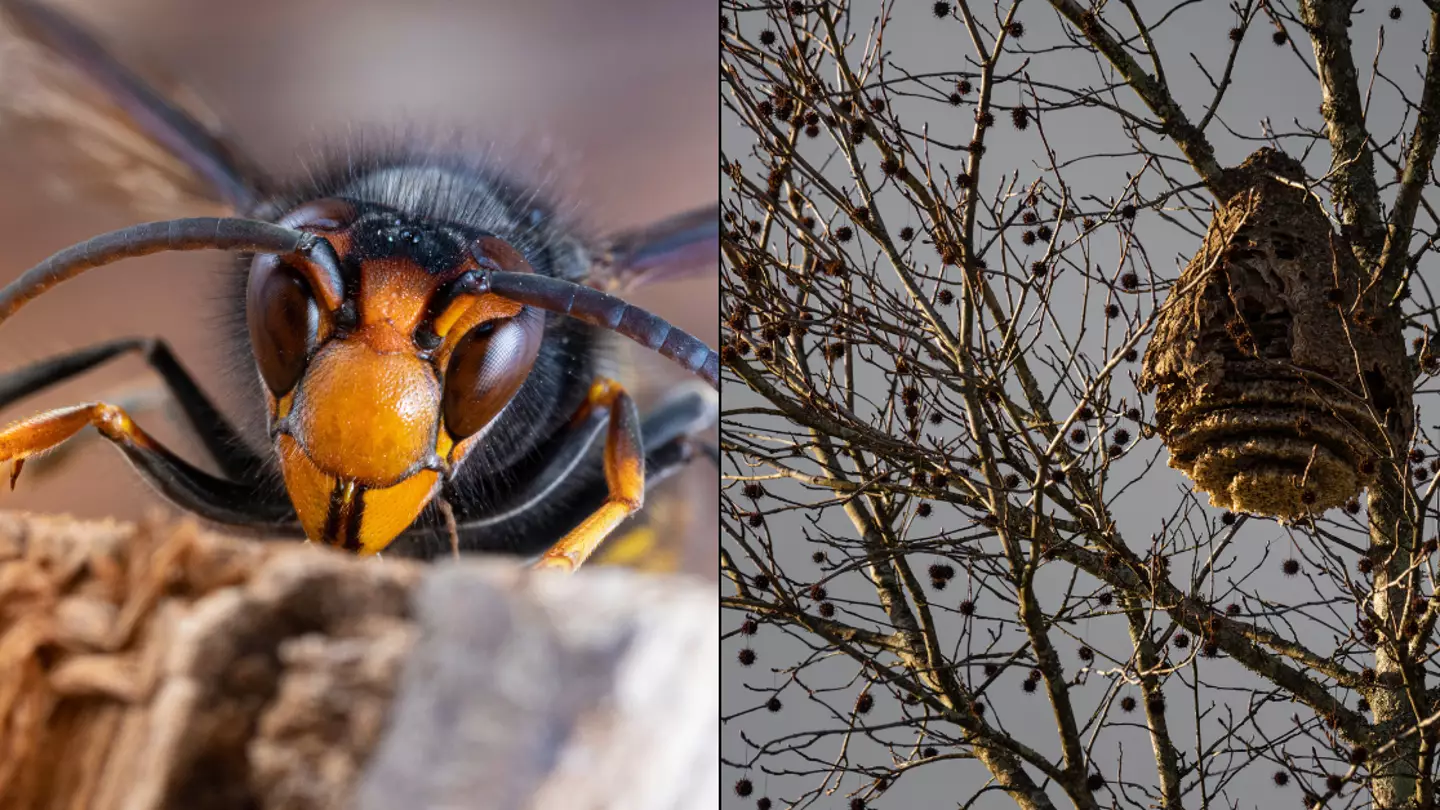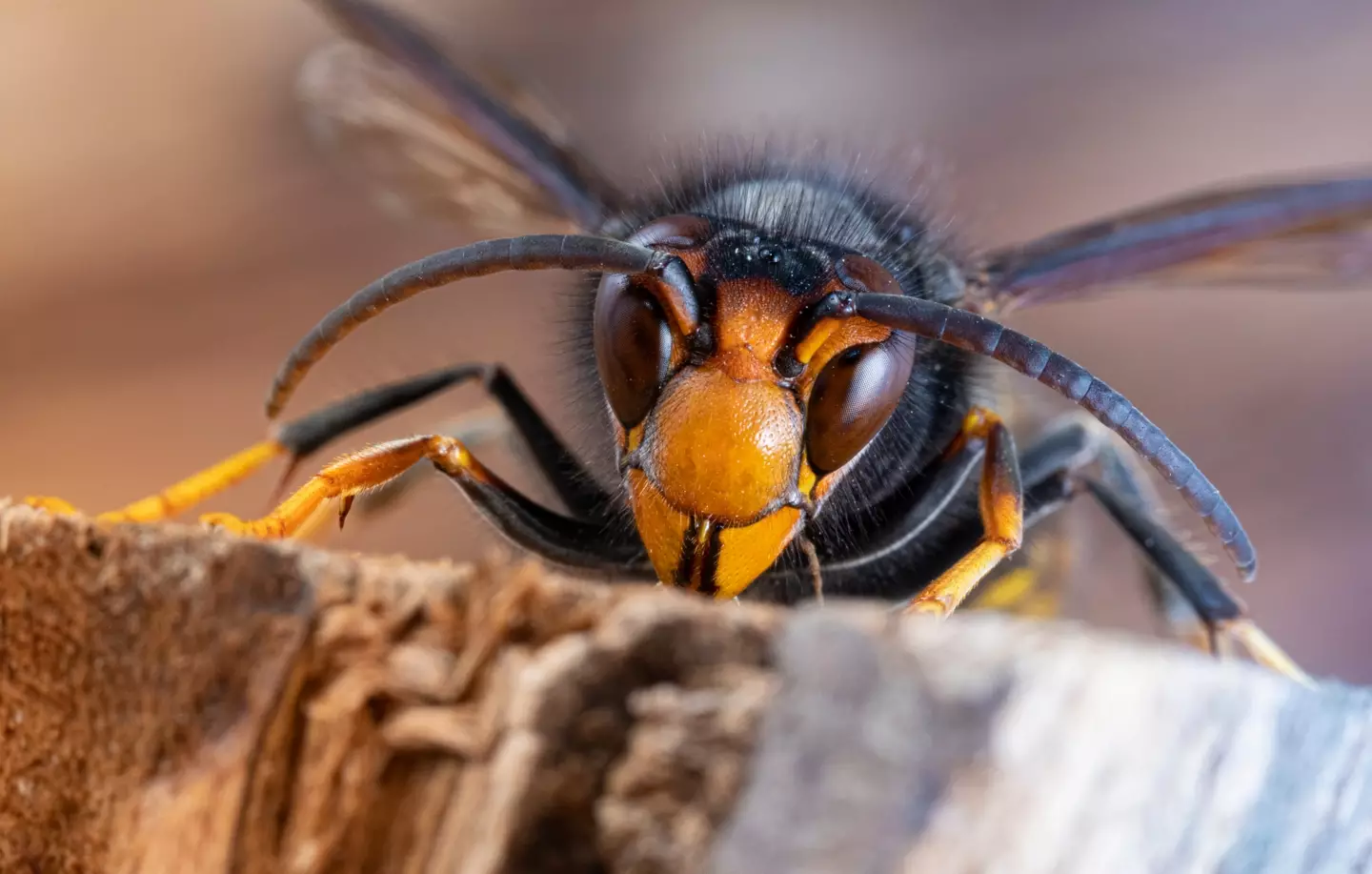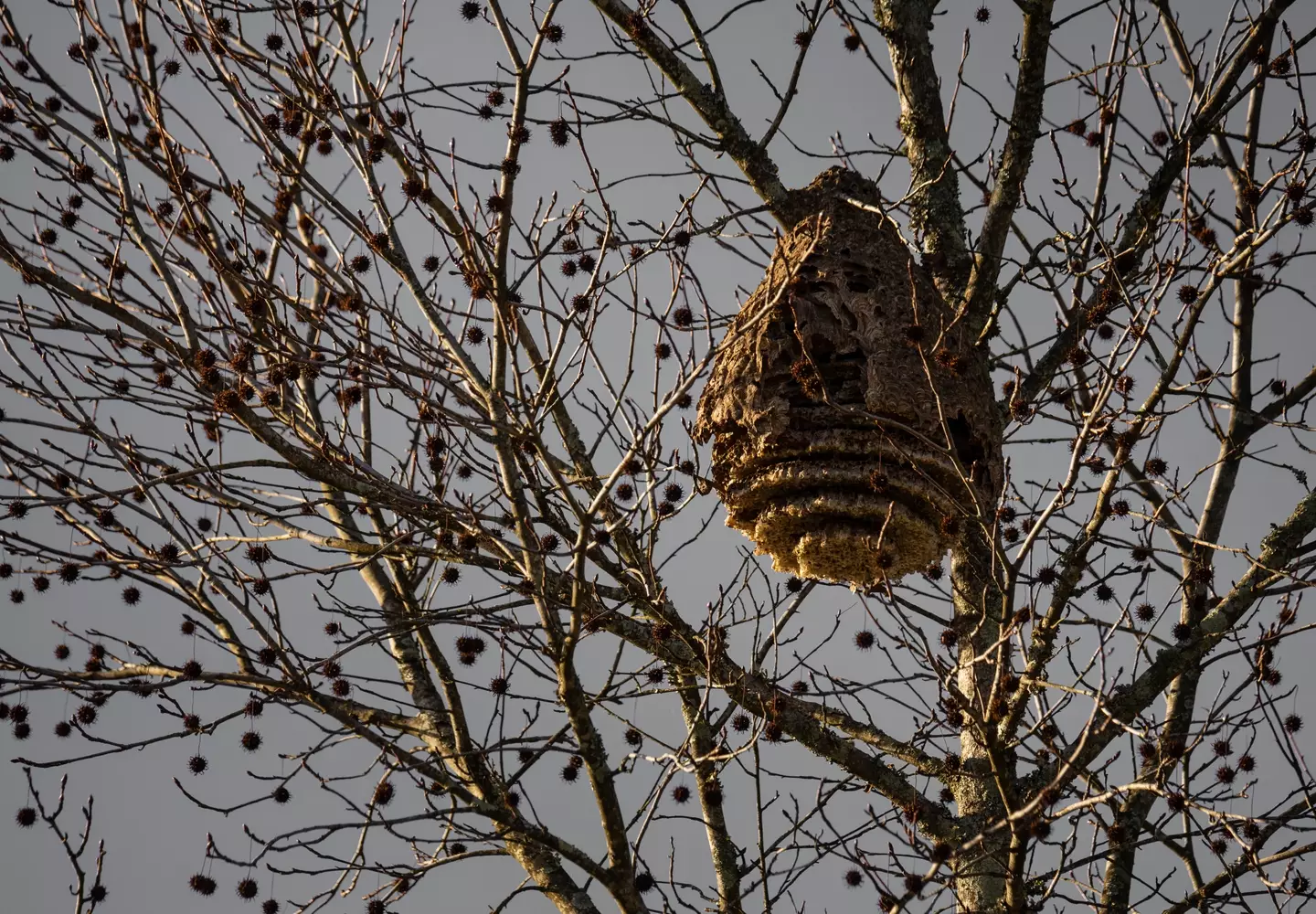
Instructions on how to deal with being stung by an Asian Hornet have been outlined.
Following the news that the UK have been put on Asian Hornet alert, it's worth knowing what to do if you get stung.
What to do if you see one has been outlined by authorities, while some more daring (or dim) have purposely stung themselves to see what happens afterwards - spoiler, it's not great.
Asian Hornets can potentially be very harmful, and there are ways to keep them away from your house, reducing the chances of you ever coming into contact with one.
Advert
But what should you do if you get stung by one?

The Department for Environment Food & Rural Affairs (DEFRA) has warned UK residents to stay vigilant about the non-native species, but there are a few things you may want to know, in case you do run into one on your travels.
What is an Asian Hornet?
It is a yellow-legged hornet, non-native to the UK, and though slightly smaller than our native hornets, they are known as the 'Asian Predatory Wasp'.
Known also as the Vespa velutina, they can easily be identified with their very dark body, wide orange stripe across their fourth abdomen section and yellow leg ends.
They may become more commonly seen as the warmer months approach, but the good news is they pose no larger health risk compared to our local wasps and hornets, a single hornet can consume 50 honey bees in a single day, while a swarm can easily wipe out a hive of 30,000.
It poses a problem to honey bees themselves and insect pollinators - the Health Officer's warning comes after 2023 saw the most Asian hornet sightings in history.
What to do if you see an Asian Hornet
DEFRA has advised people to download the app 'Asian Hornet Watch' to report the sightings, or to fill in this online report form.
If not, you can email [email protected] with a photograph if it is safe to do so, as they further explain that identification guides and further information is available on the gov.uk sightings page and on BeeBase.
DEFRA also state: "It is important to take care not to approach or disturb a nest.
"Asian hornets are not generally aggressive towards people but an exception to this is when they perceive a threat to their nest."

What you should do if you're stung by an Asian Hornet?
An Asian hornet sting hurts 'a lot more' than a regular hornet's, according to health and wellness expert Jay Riggs, from Zeal CBD.
The toxicity is greater than most stinging insects, and can cause more swelling than a normal hornet, though Riggs describes the pain as: "Similar to being stabbed by a red-hot needle. Where the needle punctures the skin, it can swell severely and ache for a few days."
If you do get stung, you should wash the area as soon as possible thoroughly with soap and cool water, later applying ice to slow the venom from spreading.
Unlike bees, hornets don't leave a stinger so you won't have to remove anything.
Riggs also explained: "If you have been stung multiple times or notice signs of an allergic reaction then it is important to seek medical attention."
He advises taking an antihistamine, applying hydrocortisone cream or calamine lotion to reduce the pain.
When should you see a Doctor about the sting?
If you find yourself having trouble breathing, wheezing or shortness of breath after being stung, you may be having an allergic reaction, where Riggs recommends you find a doctor if your throat then starts to feel tight and you have trouble swallowing.
It is advised that if you have a known allergy to wasps, bees, hornets or yellow jacket stings, you should always carry a bee sting and know how to use it if necessary.
Topics: Health, Environment, UK News